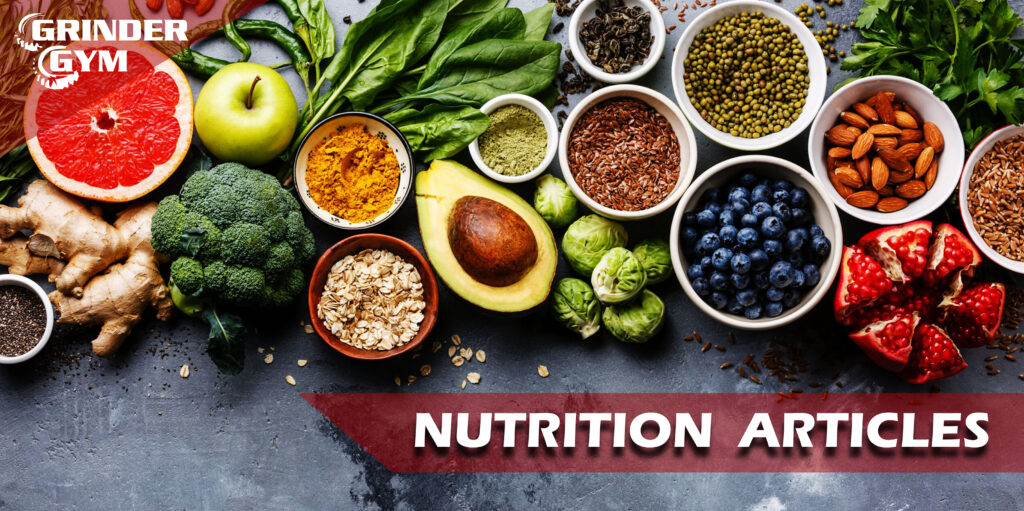
In strength training, nutrition plays a pivotal role in determining your success. While lifting weights and following a structured training program are essential, what you eat and, importantly, when you eat can significantly impact your performance and recovery. This article delves into the concept of nutrient timing, exploring how to properly fuel your body for strength training to maximize gains and optimize recovery.
How to Properly Fuel Strength Training
Strength training demands a lot from your body, both in terms of energy and recovery. To meet these demands, it’s essential to understand the basics of macronutrients—carbohydrates, proteins, and fats—and how they fuel your workouts.
- Carbohydrates provide the primary source of energy during high-intensity workouts. They are stored in the muscles as glycogen and are crucial for sustaining your performance during training.
- Proteins are the building blocks for muscle repair and growth. Consuming adequate protein ensures that your muscles recover and grow stronger after each workout.
- Fats play a role in hormone production and provide a secondary energy source. While not the primary fuel for strength training, healthy fats support overall health and energy levels.
In addition to macronutrients, staying hydrated is critical. Water helps regulate your body temperature and lubricates joints, while electrolytes maintain muscle function and prevent cramping.
Timing Your Workout Nutrition
The concept of nutrient timing revolves around the strategic intake of nutrients before, during, and after your workouts. Proper timing helps to maximize energy availability, minimize muscle breakdown, and enhance recovery.
Pre-Workout Nutrition for Strength Training
What you eat before your workout sets the stage for your performance. A well-planned pre-workout meal should provide your body with the necessary energy to sustain strength and power throughout the session.
- Carbohydrates are the star of pre-workout nutrition. Consuming them 1-3 hours before training ensures that your muscles are stocked with glycogen, ready to fuel your efforts.
- Proteins are also important pre-workout. A moderate amount of protein in your meal can kickstart muscle protein synthesis, preparing your muscles for the work ahead.
- Fats should be kept to a minimum pre-workout, as they can slow digestion. However, a small amount of healthy fats can help maintain energy levels.
Example Pre-Workout Meal:
- 1-2 cups of oatmeal with a scoop of whey protein and a banana.
- Grilled chicken with sweet potatoes and a small side of avocado.
Intra-Workout Nutrition for Strength Training
Intra-workout nutrition can be a game-changer, especially during long or intense training sessions. Consuming the right nutrients during your workout can help maintain energy levels and reduce muscle breakdown.
- Carbohydrates during your workout can replenish glycogen stores and provide quick energy. This is especially beneficial during prolonged sessions.
- BCAAs (Branched-Chain Amino Acids) are a popular intra-workout supplement. They help reduce muscle soreness and support muscle repair by providing essential amino acids.
For most people, water alone is sufficient to stay hydrated during strength training. However, in longer sessions, a sports drink with electrolytes may be beneficial.
Post-Workout Nutrition for Strength Training
The post-workout period is often referred to as the “anabolic window,” a critical time for replenishing glycogen stores and repairing muscle tissue.
- Protein is essential post-workout to promote muscle repair and growth. Aim for a high-quality protein source within 30-60 minutes of finishing your workout.
- Carbohydrates should also be consumed post-workout to replenish glycogen stores and enhance recovery.
- Fats can be included in your post-workout meal but should not be the focus, as they can slow the absorption of protein and carbohydrates.
Example Post-Workout Meal:
- A protein shake with whey protein and a banana.
- Grilled salmon with quinoa and steamed vegetables.
Consistent Daily Nutritional Habits: The Best Strategy
While nutrient timing is important, maintaining consistent daily nutritional habits is the foundation of success. This includes eating balanced meals throughout the day to support your training and recovery.
- Meal Planning: Ensure each meal includes a balance of macronutrients—carbohydrates, proteins, and fats—to meet your daily energy and recovery needs.
- Frequent Meals: Eating every 3-4 hours can help maintain energy levels and prevent overeating at any single meal.
Meals: Structuring Your Day for Peak Performance
Your main meals—breakfast, lunch, and dinner—should be carefully planned to support your training goals.
- Breakfast: Start your day with a meal rich in complex carbohydrates, proteins, and healthy fats to fuel your morning and set the tone for the day.
- Lunch: Focus on a balance of lean proteins, carbohydrates, and vegetables to keep energy levels stable throughout the afternoon.
- Dinner: Include a good source of protein and complex carbohydrates to aid in recovery and prepare your body for the next day’s training.
Snacks: Bridging the Gaps in Your Nutrition
Snacks can be a valuable addition to your nutrition plan, helping to bridge the gap between meals and providing an extra boost of energy.
- Protein-Rich Snacks: Greek yogurt with nuts, cottage cheese with fruit, or a protein bar can keep you satisfied and support muscle growth.
- Carbohydrate-Based Snacks: Whole grain crackers with hummus or a piece of fruit can provide a quick energy boost.
Gap Nutrition: Addressing Nutritional Deficiencies
Despite your best efforts, there may be times when your diet isn’t perfectly balanced. This is where gap nutrition comes in—filling in any nutritional gaps to ensure your body has everything it needs to perform and recover.
- Supplements: Consider using supplements like multivitamins, omega-3 fatty acids, or specific vitamins and minerals based on your dietary needs.
- Targeted Nutrition: Focus on addressing any deficiencies with whole foods first, and use supplements as a secondary measure.
Conclusion
In strength training, proper nutrition and strategic nutrient timing are crucial to achieving your goals. By understanding how to fuel your body before, during, and after workouts—and maintaining consistent daily habits—you can optimize your performance, enhance recovery, and build the strength you desire. Remember, while nutrient timing can offer benefits, it’s your overall daily nutrition that lays the foundation for success.
Recent Nutrition Articles:
NUTRITION








Comments are closed